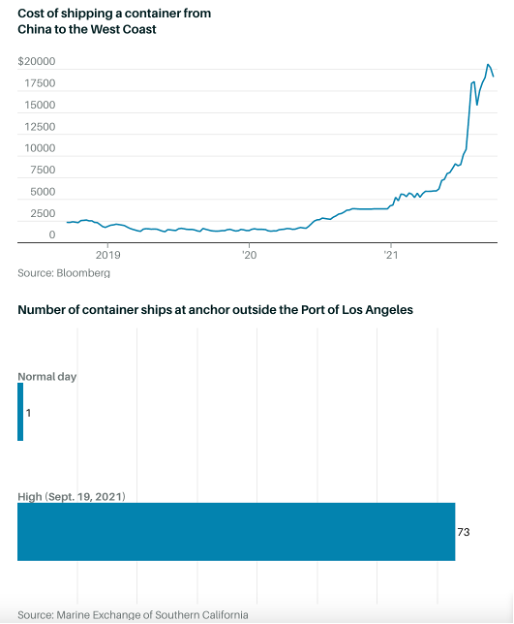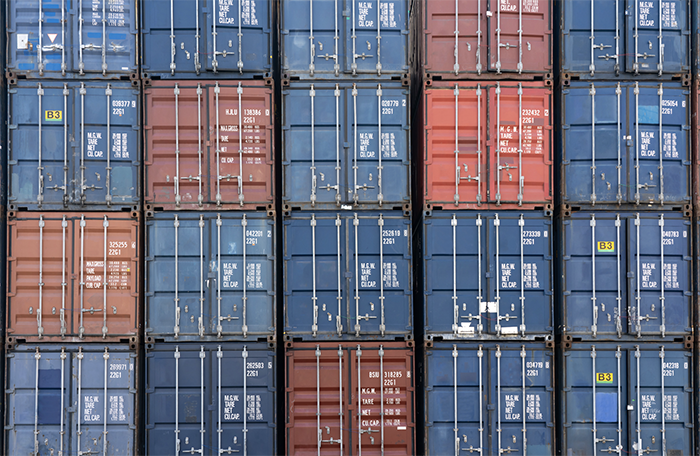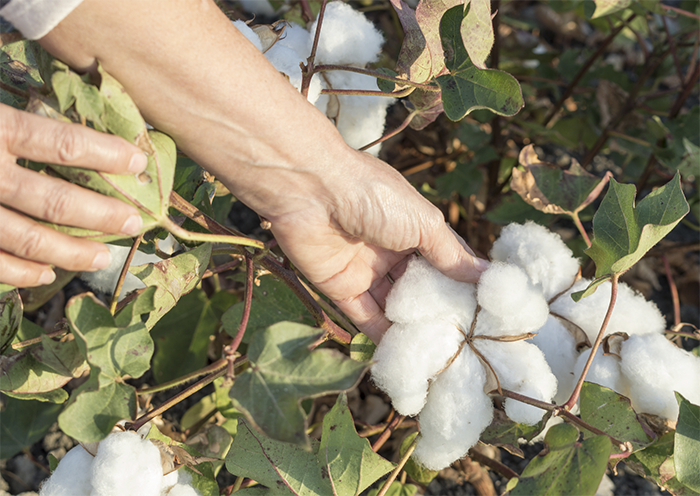Home / Company Updates / The Global Supply Chain and the Hospitality Industry
As with every other sector of the economy, manufacturing and sourcing activities for the hospitality industry have been impacted by the unprecedented supply chain problems. And the problems don’t seem to be repairing themselves any time soon.
The Hospitality Industry Supply Chain
On the Sea
From raw materials to finished products, the supply chain globally is severely strained. Tens of thousands of full containers are sitting in ports waiting for ships to take them away. Hundreds of thousands more are sitting on ships or in ports empty, waiting to be returned to China, India, and other export-heavy countries to be refilled. Worse, there are lines of ships waiting to be offloaded floating around outside of ports like Los Angeles. This has caused tens of thousands of containers to be delayed from being returned to their origin in China.

Shipping delays in ports caused by a lack of onshore personnel, as well as shipboard personnel, are wreaking havoc on the delivery of goods. This has been combined with factory shutdowns around the world that have created a massive backlog of orders.
In a strange turn of events, empty containers are being auctioned to the highest bidder and many companies are chartering container ships to get their goods to their shelves.

Shutdowns and changes caused by the pandemic created supply shortages. The rapid recovery of the economy has led to demand for goods and services dramatically out-stripping supply.
Over the Road
This is causing major hubs, like Chicago, to shut down. They are so clogged with trailers and goods, they’re not accepting new shipments until they can clear space.
Energy
To complicate matters, the US has stopped the permits for the Keystone XL pipeline that would have brought oil from Canada to Nebraska. The developer has abandoned the project with about 8% of the pipeline completed.
While global demand for energy, and the goods and services that energy powers, is increasing dramatically, the world is attempting to change its energy sources.
The Jam Up
The Textile Industry Issues
The textile industry is experiencing its own issues caused by a massive and sudden increase in demand.
The Cotton Problem

Polyester and Oil
New Variants and Supply Chain Delays
The rise of the delta variant of COVID-19 has plunged many areas right back into the shutdowns and social distancing that caused these delays in the first place. This is further complicated by the fact that delta and other variants are disproportionately affecting the same areas where manufacturing is occurring, particularly those of linens.
Responses to the new variants have varied, but in many cases, these responses are negatively impacting the production of commercial linen and bedding.
Learn more about this issue in our blog, NEW DELTA VARIANT AND THE EFFECT ON TRAVEL AND THE HOTEL INDUSTRY: GUIDE FOR HEALTH AND SAFETY.
The Global Wage Issue
One area where the COVID-19 pandemic has a massive impact is in the labor market. Not just trucking or shipping companies can’t find people, but textile mills are struggling to find staff. Combined with longer hours to try to meet demand, and you have a recipe for disaster.
Lockdowns that have rolled through nearly every nation on earth have closed mills, sometimes for months at a time, have further increased the backlogged need.
The search for workers has been hampered by government subsidies to workers affected by the pandemic. For the first time, millions of workers can make a living staying home versus going to work.
When Will It End?
No one really knows when these shipping concerns will clear up. It might be years before we find ourselves back where everything we want is on our shelves again.
Stock up when you can. It will help you maintain your rooms, spa, pool, and dining room.
At 1Concier, we’re doing everything we can to mitigate the impact of these circumstances and offer exceptional services and top-quality products. Contact one of our Account executives to ensure we have the products you need, when you need them. Our team is here to help your business thrive.
Additional reference articles of note: CNN : “More ships than parking spots’: What a stuck supply chain looks like”.
Table of Contents
Join the 1C Family as your Trusted Luxury Linen Provider
Featured Products
Choose from 14 Luxury Hotel Towel and Pool Towel Collections. We offer 100% Cotton, Cotton-Polyester blend, Pima, and Bamboo. From quick-drying absorbent towels to intricate borders and weaves, we have the right towel collection for you!
We offer a wide selection of luxury hotel sheets, bedding, blankets, and pillows in various qualities to suit your specific needs. Whether you’re looking for premium cotton sheets, soft and durable blankets, or plush pillows, we have options that ensure both comfort and elegance for your guests.
Our premium bathrobes can be found and many luxury hotels and spas, adding a touch of elegance and comfort to your guest experience. We also offer a range of guest room amenities.















